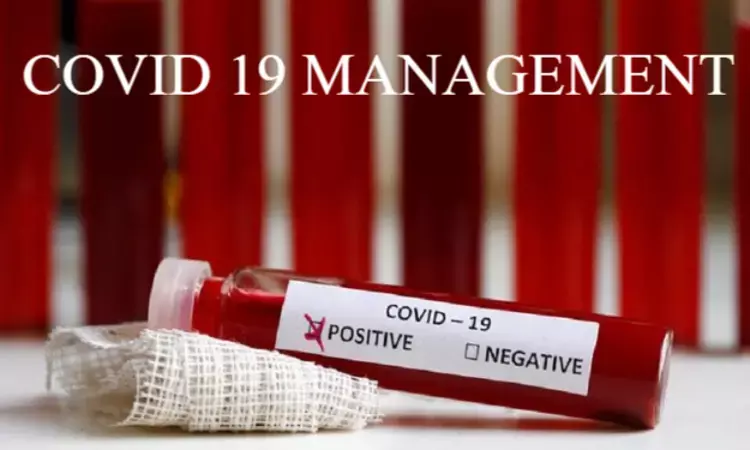- Home
- Medical news & Guidelines
- Anesthesiology
- Cardiology and CTVS
- Critical Care
- Dentistry
- Dermatology
- Diabetes and Endocrinology
- ENT
- Gastroenterology
- Medicine
- Nephrology
- Neurology
- Obstretics-Gynaecology
- Oncology
- Ophthalmology
- Orthopaedics
- Pediatrics-Neonatology
- Psychiatry
- Pulmonology
- Radiology
- Surgery
- Urology
- Laboratory Medicine
- Diet
- Nursing
- Paramedical
- Physiotherapy
- Health news
- Fact Check
- Bone Health Fact Check
- Brain Health Fact Check
- Cancer Related Fact Check
- Child Care Fact Check
- Dental and oral health fact check
- Diabetes and metabolic health fact check
- Diet and Nutrition Fact Check
- Eye and ENT Care Fact Check
- Fitness fact check
- Gut health fact check
- Heart health fact check
- Kidney health fact check
- Medical education fact check
- Men's health fact check
- Respiratory fact check
- Skin and hair care fact check
- Vaccine and Immunization fact check
- Women's health fact check
- AYUSH
- State News
- Andaman and Nicobar Islands
- Andhra Pradesh
- Arunachal Pradesh
- Assam
- Bihar
- Chandigarh
- Chattisgarh
- Dadra and Nagar Haveli
- Daman and Diu
- Delhi
- Goa
- Gujarat
- Haryana
- Himachal Pradesh
- Jammu & Kashmir
- Jharkhand
- Karnataka
- Kerala
- Ladakh
- Lakshadweep
- Madhya Pradesh
- Maharashtra
- Manipur
- Meghalaya
- Mizoram
- Nagaland
- Odisha
- Puducherry
- Punjab
- Rajasthan
- Sikkim
- Tamil Nadu
- Telangana
- Tripura
- Uttar Pradesh
- Uttrakhand
- West Bengal
- Medical Education
- Industry
Leronlimab may prevent "cytokine storm" in COVID-19, find clinical trials

BRONX - Investigational drug leronlimab may prevent the "cytokine storm" in COVID-19 infection and is being tried in FDA approved trials.
Montefiore Health System and Albert Einstein College of Medicine are the first sites in the nation to begin evaluating an investigational drug in two separate, FDA-approved trials: one to treat mild-to-moderate cases of COVID-19, and the other to treat severely ill COVID-19 patients.
They are hopeful that the drug, leronlimab may prevent the "cytokine storm" that inflames and fatally damages the lungs and other organs of many COVID-19 patients.
Harish Seethamraju, M.D., an organ transplant specialist and a member of the department of medicine at Montefiore and Einstein, researched leronlimab early in the pandemic, and realized its potential for treating his transplant patients who had COVID-19. He then obtained "compassionate use" permission from the Food and Drug Administration so that he and his colleagues could use leronlimab on 10 severely ill COVID-19 patients, six of them transplant patients from various organ transplant programs.
"By calming the overactive immune systems of these patients, leronlimab halted the inflammation and blood clotting that are so damaging to the lungs, liver and kidneys of severely ill COVID-19 patients," said Dr. Seethamraju. All 10 patients had extremely high blood levels of CCL5, which are inflammatory molecules known as cytokines.
This is why the extreme inflammatory response is known as the "cytokine storm." Leronlimab interfered with those CCL5 molecules, preventing them from directing immune cells to swarm into and inflame the lungs and other organs.
On May 5th, a study describing promising results for those 10 severely ill patients was made public on the website, MedRxiv, a resource especially useful during the COVID-19 pandemic to make research quickly available to the scientific community. Co-authored by Dr. Seethamraju, the study reported that five of the 10 patients treated with leronlimab survived; the study also described the drug as "a novel approach" to resolving unchecked inflammation.
Based on the positive results with those patients, the FDA approved Dr. Seethamraju's application for a phase 2 trial of leronlimab. That trial began enrolling both inpatients and outpatients with mild-to-moderate COVID-19 on April 2. A total of 75 will participate.
"Such patients all too often seem to be recovering, but then crash and burn when their lungs are overwhelmed by an inflammatory reaction that makes breathing impossible, "says Dr. Seethamraju. "The FDA is concerned that there is no treatment for those people."
Patients in the multicenter trial receive two injections, one week apart, of either leronlimab or a placebo and are assessed periodically over six weeks for fever, muscle pain, difficulty breathing and cough. Dr. Seethamraju is a co-principal investigator of the Montefiore trial site, along with Scott A. Scheinin, M.D., surgical director of advanced pulmonary failure and lung transplantation, division chief of thoracic surgery and surgical oncology, and director of the Bloodless Heart Surgical Program at Montefiore.
On April 16th, Montefiore enrolled the first patient in a second FDA-approved leronlimab clinical trial: a randomized, double blind trial to assess the optimal dose, safety and effectiveness of leronlimab in treating severely ill COVID-19 patients.
The 390 patients taking part in this multicenter trial will receive two weekly doses of either leronlimab or placebo; there will be twice as many patients receiving leronlimab as those receiving the placebo. The trial will evaluate the patients' survival at 14- and 28-days following treatment.
The two leronlimab clinical trials are being conducted under the direction of the departments of cardiothoracic surgery and medicine at Montefiore and Einstein. Leronlimab is a monoclonal antibody drug developed by CytoDyn Inc., a biotechnology company based in Vancouver, WA.
Dr Kamal Kant Kohli-MBBS, DTCD- a chest specialist with more than 30 years of practice and a flair for writing clinical articles, Dr Kamal Kant Kohli joined Medical Dialogues as a Chief Editor of Medical News. Besides writing articles, as an editor, he proofreads and verifies all the medical content published on Medical Dialogues including those coming from journals, studies,medical conferences,guidelines etc. Email: drkohli@medicaldialogues.in. Contact no. 011-43720751


